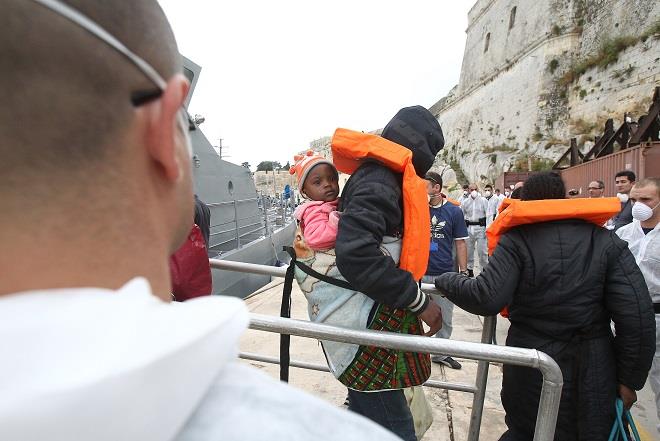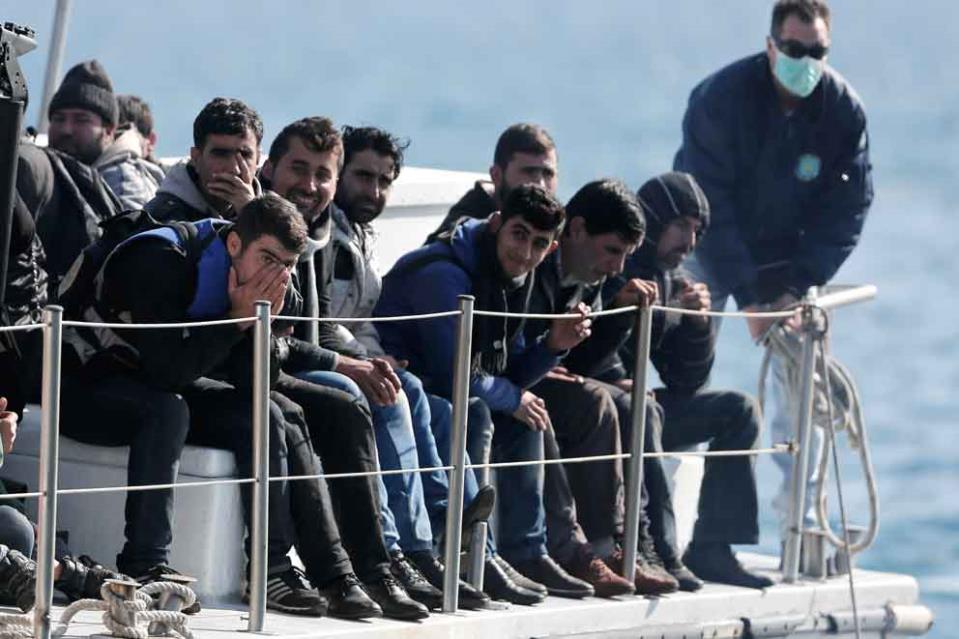A handful of German philanthropists, including German entrepreneur Harold Hoeppner, are renovating a 100-year-old fishing boat to help refuges in distress in the Mediterranean.
Planning to set off on their mission early next month, the eight-man crew will ply the waters between Malta and Libya - the area most prone to incidents involving refugees - with a renovated vessel that was built in 1917.
Currently, the crew behind the Sea Watch mission is working on the 21-metre wide cutter in the port of Hamburg, a Sea Watch spokesman, Daniel Shepherd, told The Malta Independent yesterday. Work on the vessel is now in its final stages.
“The vessel is scheduled to depart early in April and is expected to commence her project in the Mediterranean around mid-May,” the spokesman said.
Mr Shepherd said that the crew are not millionaires but, rather, “ordinary people”.
The mission’s concept, he explained, is to notify the Coast Guard when or if they spot a migrant boat in distress.
“We cannot draw countless people out of the waters,” he said.
Sea Watch will have its own life rafts, water and radios on board. But most important of all will be their satellite phone to call from any position they may be while out at sea to give assistance.
And if the authorities do not intervene in time, the Sea Watch will be there to fill the void.
“In practical terms, we will be providing additional lookout capabilities, alerting authorities or nearby vessels to any incidences of people in distress, distributing life rafts, lifesavers, food and water,” Mr Shepherd said.

The inspiration behind Sea Watch project
“The inspiration underlying the Sea Watch project is quite simple. We are not prepared to sit idly by and watch migrants in distress perish at the borders of Europe when we know that there is more that the EU authorities can be doing to help those people. If the EU authorities will not put in place the necessary infrastructure to render assistance to those in distress then we, as EU citizens, are prepared to fill that void until they do,” Mr Shepherd explained.
The crew said it is overwhelmed with the financial help they are receiving from people from all walks of life.
“The initial phase of the project is funded by a small group of private individuals. As the project matures it is hoped that further charitable donations will fund the remainder of the Sea Watch’s time in the Mediterranean.”
For instance, a grandmother called them and wanted to transfer three euros a month to an account of theirs while a lawyer gave them a thousand euros. A punk band even wants to engage in an advertising campaign with Sea Watch.
“The scope of our project differs slightly to that of MOAS (the Migrant Offshore Aid Station) although we aim to complement the work of MOAS where we are able to do so,” the spokesman said when asked by this newsroom if the mission will be similar to that of the Migrant Offshore Aid Station - headed by former Armed Forces of Malta Commander Brigadier Martin Xuereb. The MOAS is an NGO providing life-saving services at sea.
The spokesman went on to explain that Sea Watch was founded on the duty to render assistance and a desire to assist those whose lives are in danger at sea; the Sea Watch project seeks to privately act in support of current international search and rescue efforts by providing additional voluntary lookout capabilities, a capacity to help raise international awareness and, where safe and able to do so, to render assistance to those in distress.
“The Sea Watch is not a rescue organisation, nor is it within the scope of the organisation to undertake such rescue operations. Assistance will be rendered to those whose lives are at risk pursuant to Article 98 of the United Nations Convention on the Law of the Sea (UNCLOS). The Sea Watch project and its members are free from any economic motivation and/or personal gain and operate strictly on a not for profit basis within the policy guidelines available on its website www.sea-watch.org."

Operation Mare Nostrum
Questioned as to whether the halting of Italy’s Mare Nostrum operation has left a negative impact, Mr Shepherd said that the scaling back of coordinated rescue operations, namely the cessation of Operation Mare Nostrum, has had a very negative impact on what was already a growing problem. “Furthermore, there has been a worrying tendency for the EU to look at what are essentially rescue obligations in terms of border security concerns. So much so that the general duty to render assistance has in some cases been criminalised by the broad tendency for the EU and its members to cut down on the the issue of irregular migration through an anti-smuggling legislative framework rather than to humanise the issue through a framework of human rights obligations.
“The primary concern must be saving the lives of those men, women and children in distress at sea,” Mr Shepherd said.

Crew comprises a wide array of professions
The Sea Watch project draws on a broad base of volunteer experience and skills. Among the professions of the crew, there are former ship captains (civilian and military), engineers, tradesmen, doctors, lawyers, and teachers. There is also a broad network of support provided by various civil society organisations.